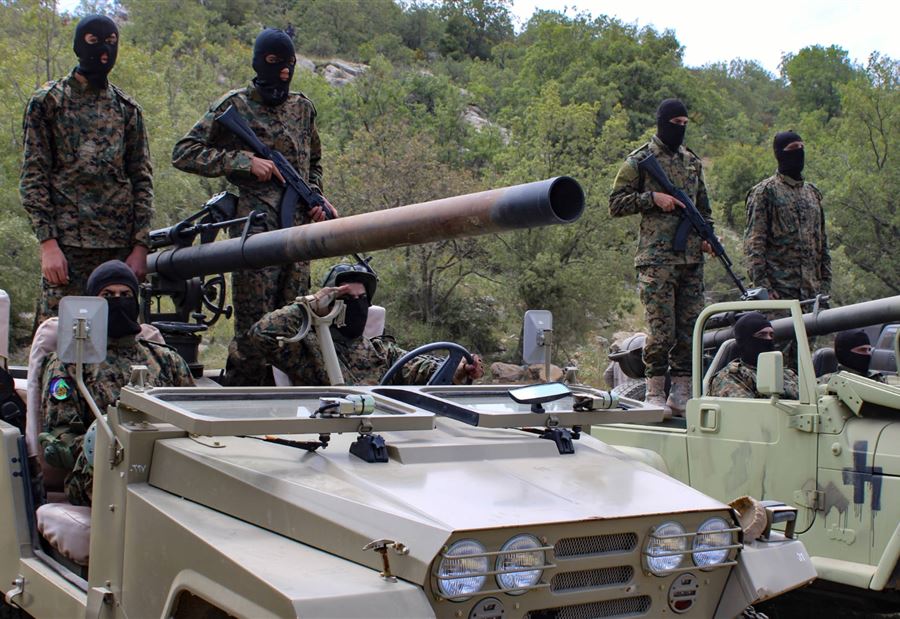“واشنطن بوست”: حزب الله يواجه أزمة مالية تهدد قدراته في لبنان
كشف تقرير لصحيفة “واشنطن بوست” عن أن حزب الله يواجه أزمة مالية حقيقية إثر قطع خطوط الإمداد التقليدية التي كانت تصل إليه من إيران عبر مطار بيروت وسوريا. تأتي هذه الأزمة في وقت يتعرض فيه الحزب لضغوط متزايدة من أجل تعويض وتوفير الدعم للمواطنين الذين يشعرون بالغضب من بطء وتيرة إعادة الإعمار بعد تدمير قراهم في الحرب الأخيرة مع إسرائيل.
وتشير الصحيفة إلى أن المشاكل المالية التي يعاني منها حزب الله تعد أكبر تهديد يواجهه في الوقت الحالي، لا سيما في ظل فقدان نفوذه السياسي بعد انتخاب جوزاف عون رئيسًا للجمهورية اللبنانية.
كما لفتت الصحيفة إلى أن المسؤولين اللبنانيين قد منعوا طائرة إيرانية من الهبوط في بيروت في وقت سابق من هذا الشهر، حيث اتهمت إسرائيل إيران باستخدام الرحلات التجارية لتهريب الأموال إلى الحزب.
وأضافت الصحيفة أن الحكومة السورية الجديدة بدأت تفرض إجراءات صارمة ضد المهربين المرتبطين بحزب الله على طول الحدود الشرقية للبنان. هذا الأمر أسفر عن اشتباكات مع الجيش السوري، مما زاد من التوترات بين البلدين. بدت هذه الإجراءات السورية وكأنها موجهة ضد حزب الله، الذي كان قد دعم حكومة بشار الأسد خلال الحرب الأهلية السورية.
من جانبه، قال سام هيلر، الزميل غير المقيم في مؤسسة “القرن الدولية للبحوث والسياسات الدولية”، إن “تقييد التدفقات الإيرانية قد وضع حزب الله في موقف صعب للغاية”، مشيرًا إلى أن هناك قلة من الإجراءات التي اتخذتها سوريا ضد المهربين في المناطق غير التابعة لحزب الله.
وفي تطور آخر، أعلن الأمين العام لحزب الله، نعيم قاسم، في كانون الأول الماضي، أن الحزب سيقدم تعويضات مالية تتراوح بين 12 ألف و14 ألف دولار لكل أسرة تعرضت لخسائر نتيجة الحرب مع إسرائيل.
لكن في أوائل شباط الماضي، توقفت “مؤسسة القرض الحسن”، الذراع المالية لحزب الله، التي كانت هدفًا رئيسيًا للغارات الجوية الإسرائيلية خلال الحرب، عن دفع التعويضات لمدة خمسة أيام بسبب صعوبات تقنية.
وفي نفس السياق، اضطر الحزب في الأشهر الأخيرة إلى التعامل مع نحو 100 ألف نازح شيعي وعلوي فروا من سوريا وتم استضافتهم في مساجد ومراكز دينية تابعة له في شمال شرق لبنان.
وأوضح أستاذ العلوم السياسية في الجامعة الأميركية في بيروت، هلال خشان، أن حزب الله ليس لديه القدرة المالية على إعادة البناء بمفرده، وأنه سيحتاج إلى دعم خارجي. وأشار إلى أن “ما حدث في سوريا كان بمثابة القشة التي قصمت ظهر البعير، فقد تم قطع الاتصال بين إيران وحزب الله”.
وبالنسبة للوضع المالي للحزب، نقل أحد الأعضاء المطلعين قوله إن الحزب لا يزال يمتلك أموالًا حاليًا، ولكن هذا الوضع غير مؤكد على المدى الطويل. وأضاف أن القيود المفروضة على وصول الأموال عبر مطار بيروت أو عبر البر من سوريا تعيق بشكل كبير قدرات الحزب التشغيلية وجهوده في إعادة التنظيم.
كما أفاد بأن البنوك قد رفضت معالجة التحويلات المالية الخاصة بمؤيدي الحزب في الخارج خوفًا من انتهاك العقوبات الأميركية المفروضة عليه. ورغم أن الحزب لا يزال قادرًا على دفع الرواتب حاليًا، إلا أن استمرار ذلك يبقى موضع شك. وأوضح أن الحزب يواجه صعوبة في جهود إعادة بناء المنازل المتضررة في مناطقه.
وفي الوقت نفسه، قال عضو آخر في الحزب إن رغم قطع طرق الإمداد المباشرة من إيران، فإن هناك طرقًا أخرى قد تكون متاحة لجلب الأموال من إيران، مثل استخدام الطيران من دول ثالثة.
“Washington Post”: Hezbollah Faces a Financial Crisis Threatening Its Capabilities in Lebanon
A report by The Washington Post reveals that Hezbollah is facing a severe financial crisis after its traditional supply lines from Iran, via Beirut airport and Syria, have been severed. This crisis comes at a time when the group is under increasing pressure to compensate and support citizens who are growing frustrated with the slow pace of reconstruction following the destruction of their villages in the recent war with Israel.
The newspaper highlights that the financial troubles Hezbollah faces represent the biggest threat to its operations, even more than the loss of its political influence in Lebanon following the election of Joseph Aoun as the president of the republic.
The report also notes that Lebanese officials recently prevented an Iranian plane from landing in Beirut, as Israel accused Iran of using commercial flights to smuggle money to the armed group.
In addition, the newspaper added that the new Syrian government has begun enforcing strict measures against Hezbollah-linked smugglers along Lebanon's eastern border. These measures have led to clashes with the Syrian army, escalating tensions between the two countries. These Syrian actions appear to be directed at Hezbollah, which had supported Bashar al-Assad's government during the Syrian civil war.
Sam Heller, a non-resident fellow at the Century International Foundation for Research and Policy, pointed out that “the restriction of Iranian supply lines has put Hezbollah in a very difficult position,” adding that there are few signs that Syria has taken action against smugglers in areas not controlled by Hezbollah.
In December, Hezbollah's Secretary-General, Naeem Qassem, announced that the group would provide compensation ranging from $12,000 to $14,000 to each family that suffered losses due to the war with Israel.
However, in early February, Hezbollah's financial arm, “Al-Qard Al-Hassan,” which had been a primary target of Israeli airstrikes during the war, stopped paying compensations for five days due to technical difficulties.
At the same time, Hezbollah has recently been forced to accommodate around 100,000 Shiite and Alawite refugees fleeing Syria, who are now hosted in its mosques and religious centers in northeastern Lebanon.
Hilal Khachan, a professor of political science at the American University of Beirut, stated that Hezbollah does not have the financial capacity to rebuild on its own and will require external support. He pointed out that “what happened in Syria was the straw that broke the camel’s back, as the connection between Iran and Hezbollah was severed.”
Regarding the group's financial situation, an insider member revealed that Hezbollah still has money currently, but this is uncertain in the long term. The member added that the restrictions on money flowing through Beirut airport or overland from Syria are significantly hindering Hezbollah's operational capabilities and its efforts to reorganize.
Furthermore, banks have refused to process financial transfers from Hezbollah's supporters abroad for fear of violating U.S. sanctions. While Hezbollah is still able to pay salaries at present, the continuation of this is uncertain. The group is also facing difficulties in rebuilding damaged homes in its strongholds.
However, another Hezbollah member stated that, even if direct supply lines from Iran are cut off, there may be alternative ways to bring money from Iran, such as using flights from third-party countries.
Translated by economyscopes team
المصدر: الحرة
 سكوبات عالمية إقتصادية – EconomyScopes إجعل موقعنا خيارك ومصدرك الأنسب للأخبار الإقتصادية المحلية والعربية والعالمية على أنواعها بالإضافة الى نشر مجموعة لا بأس بها من فرص العمل في لبنان والشرق الأوسط والعالم
سكوبات عالمية إقتصادية – EconomyScopes إجعل موقعنا خيارك ومصدرك الأنسب للأخبار الإقتصادية المحلية والعربية والعالمية على أنواعها بالإضافة الى نشر مجموعة لا بأس بها من فرص العمل في لبنان والشرق الأوسط والعالم




